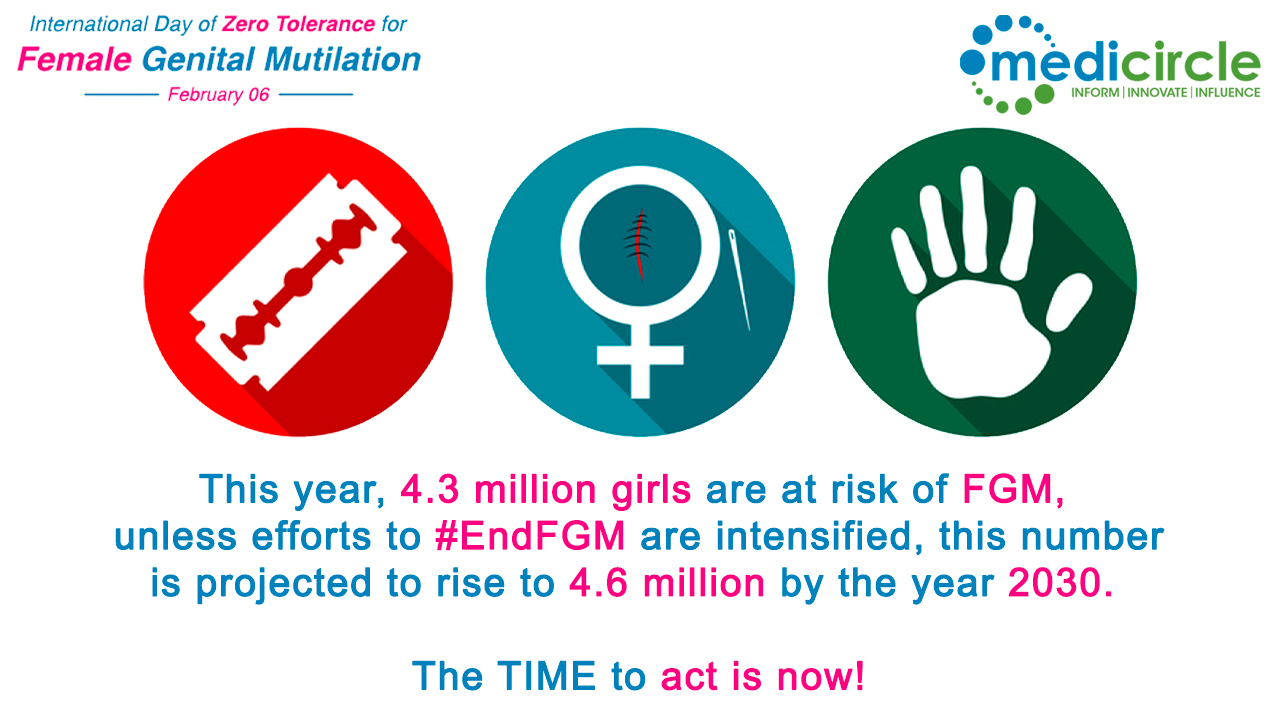The International Day of Zero Tolerance for Female Genital Mutilation takes place on February 6 and was first introduced in 2003. An initiative has been taken to end female genital mutilation. It is sponsored by United Nations-sponsored annual awareness day.
Female genital mutilation (FGM) comprises all procedures that involve partial or total removal of the external female genitalia, or other injury to the female genital organs for non-medical reasons. FGM is mostly carried out on young girls before puberty hits. It is also known as female circumcision or cutting, and by other terms, such as Sunna, gudniin, halalays, tahur, megrez and khitan, among others.
Facts:
200 million girls and women alive today living in 31 countries has undergone FGM.
FGM is a violation of girls’ and women’s human rights.
Africa, the Middle East and Asia are the countries, where FGM is practiced.
FGM is illegal in the UK. It is illegal to take girls who are UK nationals or UK residents abroad for FGM whether or not it is lawful in that country.
Effects of Female genital mutilation on health:
- Constant Pain
- Pain and difficulty in having sex
- Bleeding, cysts and abscesses
- Problem while peeing or holding pee in.
- Infections lead to infertility
- Problem in labour and child birth
Some girls even die from blood loss or infection as a result of the procedure.
FGM and Mental health:
This cruel incident mostly lead to mental health issues like:
- Depression
- Anxiety
- Flashbacks of the incidence that can lead to panic attacks
- Post-traumatic stress disorder or PTSD
Why FGM is carried out?
FGM is performed for a variety of cultural or religious reasons, with the false hope that the girl will somehow benefit. It’s a harmful practice that has no health benefits and there are no acceptable reasons that justify FGM.
FGM and law
The method that FGM is regulated (and typically criminalized) differs from one nation to the other. Some nations' constitutions ban FGM, while others have approved special legislation making FGM unlawful.
According to The Prohibition of Female Genital Mutilation Act (2011) criminalizes female genital mutilation (FGM). The Act also provides that if FGM is carried out and causes death, the perpetrator will be liable to imprisonment for life.
Female genital mutilation has been explicitly criminalized in the Netherlands since 1 February 2006, namely in the then Articles 5.3 and 5a.1 of the Dutch Criminal Code (Wetboek van Strafrecht),
In the United States, FGM was criminalized federally in 1996.
“When you circumcise a girl child, you affect her womanhood”- Joseph Osuigwe.

 Female Genital Mutilation is harmful and illegal that should be prohibited by strict laws. Let's delve into this topic to know more about it.
Female Genital Mutilation is harmful and illegal that should be prohibited by strict laws. Let's delve into this topic to know more about it.









.jpeg)











.jpg)








